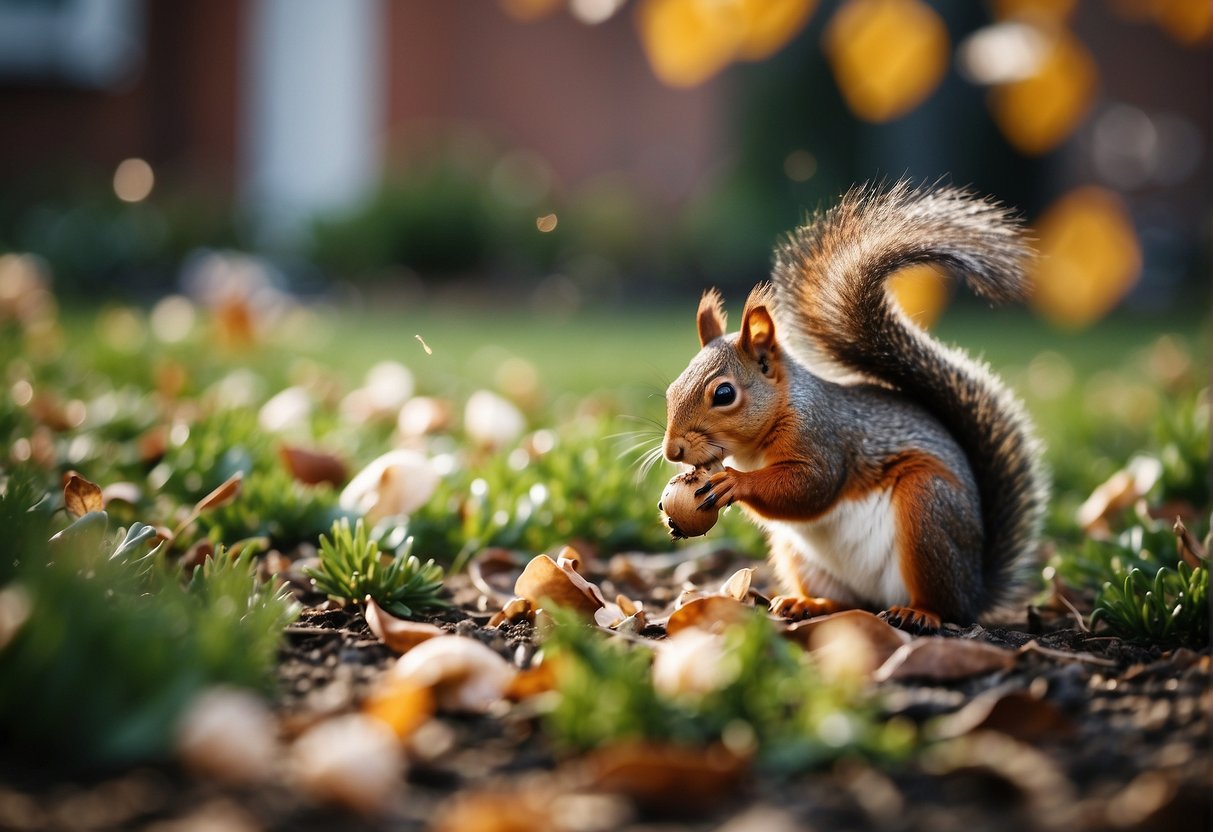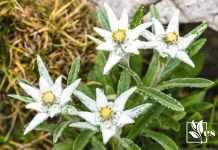As a seasoned gardener, I’m well aware that the quest for vibrant blooms often leads to a common dilemma – protecting bulbs from the foraging wildlife, particularly squirrels. The relationship between squirrels and bulbous plants in gardens is a significant one to note. Squirrels are known for their habit of digging up and feasting on a variety of bulbs, and unfortunately, lily bulbs fall within their menu choices.

I have learned through experience and observation that squirrels do indeed eat lily bulbs, which can pose a significant challenge for us gardeners who cherish our lilies.
Being proactive in the garden means implementing strategies to protect these bulbs effectively. Through trial and error, as well as research, I have found that using repellents that contain capsaicin, or natural deterrents like red pepper flakes, could discourage these little critters. Additionally, there are certain bulb varieties that squirrels tend to avoid, such as daffodils, which could be integrated into the garden as a preventive measure. Growing a squirrel-friendly garden is about balance – providing them with alternative food sources may also help keep lily bulbs safe.
JUMP TO TOPIC
Selecting and Preparing Your Planting Area
Before diving into planting, the area where you intend to plant lily bulbs needs careful selection and preparation to discourage squirrels and give your bulbs the best chance to flourish. From choosing squirrel-resistant bulbs to protective measures and optimal planting times, these strategies are tailored to enhance your garden’s success.
Choosing the Right Bulbs
When I select bulbs, I prioritize those less appealing to squirrels. I’ve found that daffodils, alliums, and hyacinths are usually ignored by these critters, so I intersperse these with my lily bulbs. Squirrels often avoid tulips and crocus variants as well, but these can be mixed with less appetizing options for a robust defense.
Protecting Bulbs Before Planting
It’s essential to protect your bulbs before they go into the ground. Here’s what I do:
Bulb cages: I use chicken wire or specially designed bulb cages to physically protect the bulbs once they are in the ground.
By disguising the appeal of the bulbs and creating a physical barrier, I considerably reduce the risk of squirrels feasting on them.
Timing for Bulb Planting
Timing can be everything. I delay the planting of my bulbs until later in the fall when squirrels have typically finished stocking up for winter. This minimizes the chance they’ll discover and dig up the freshly planted bulbs. I also make sure to clean up any planting-area remnants, like loose soil or bulb scales, which might attract attention. This ensures my garden beds don’t become an easy target for these persistent foragers.
Protective Strategies Against Wildlife
When safeguarding gardens from wildlife like squirrels and deer, two effective approaches entail using physical barriers and applying natural repellents. These methods are essential for preventing damage to your landscape and ensuring your precious plants remain untouched.
Physical Barriers and Deterrents
I found that erecting fences and placing barriers can be quite effective in keeping larger pests such as deer away. To specifically protect bulbs from smaller critters like squirrels, I use chicken wire or hardware cloth over the planting area.
Chicken wire: Lay it flat on the soil surface above where bulbs are planted and secure it with ground staples.
Hardware cloth: Create a cage around the bulbous areas, ensuring gaps are small enough to prevent squirrels from reaching through.
Natural Repellents and Alternative Measures
Natural deterrents such as scents and spicy repellents can also discourage wildlife pests. I occasionally apply homemade pepper spray or commercial deer repellent around my precious flora.
Commercial repellents: Ready-to-use sprays with scents that animals dislike can also be applied around your garden’s perimeter.
Other strategies include adding sharp gravel around plants, which can be uncomfortable for pests to dig through, and providing alternate food sources to distract them from my precious plants. I also ensure the yard is kept clean from fallen fruits or seeds, which may attract squirrels and other wildlife.
Ongoing Care for Garden Vitality
Maintaining a healthy, vibrant garden that effectively deters squirrels from munching on lily bulbs requires ongoing attention and specific measures. In this section, I’ll guide you through creating an environment less appealing to these critters and enhancing your garden’s beauty.
Maintaining a Healthy Garden Environment
A garden’s health hinges upon vigilant and consistent care. Covering bulbs with a layer of mulch or wire mesh can protect them from hungry wildlife. I make it a point to periodically inspect plants for signs of squirrel activity, such as dug-up soil or gnawed stems and leaves. Additionally, I always ensure there is an alternate food source, such as a squirrel feeder placed away from the garden, to divert their attention.
To deter squirrels, I incorporate plants they dislike, such as fritillaria or daffodils, amid the lilies. This not only creates a natural barrier but also contributes to the garden’s biodiversity. Regularly trimming shrubs and clearing up leaf litter minimizes hiding spots for squirrels and other wild animals, making the garden less inviting for them.
Enhancing Garden Aesthetics
Well-kept gardens aren’t just about the practicality of deterring pests; they are also a reflection of beauty and care. By choosing a variety of plants that bloom at different times, I ensure that there’s always something in flower, providing continuous visual appeal and making it less likely that squirrels will focus on any single plant type.
💥 I focus on harmony in colors and textures
I complement the lily bulbs with low-growing ground covers, which provide an attractive carpet beneath taller plants and additionally help to suppress weeds. By using elements like decorative stones or garden art, I create focal points that draw the eye and distract from any plant damage that might occur.
In essence, by nurturing a resilient ecosystem within your garden and paying close attention to its aesthetics, you not only increase its vitality but also make it an inhospitable environment for squirrels looking to feast on your lily bulbs.
Comprehensive Defense Against Squirrel Intrusion
Squirrels, as omnivores, display a clear preference for nuts, but they don’t shy away from bulbs, like those of cherished lily plants. I’ve experimented with a variety of deterrents to keep these critters at bay, and here’s a distilled guide featuring some effective strategies.
💥 Squirrel Repellant Plants: Integrate plants like fritillaria, scilla, muscari (grape hyacinth), and galanthus, which are less palatable to squirrels, among your lilies. These can act as natural deterrents.
Avoid creating environments conducive to foraging by eliminating food sources like exposed seeds or nuts in the vicinity of your lily bulbs.
For those seeking an immediate solution, red pepper flakes can provide a quick fix. Sprinkle them liberally over the soil, as their pungent quality is an excellent deer and squirrel repellent. Remember, though, this method requires reapplication after rain.
Finally, while we focus on squirrels, keep in mind that chipmunks and other rodents might also be interested in your bulbs. A comprehensive approach often works best, combining multiple tactics to keep these voracious critters away from your beloved garden.











